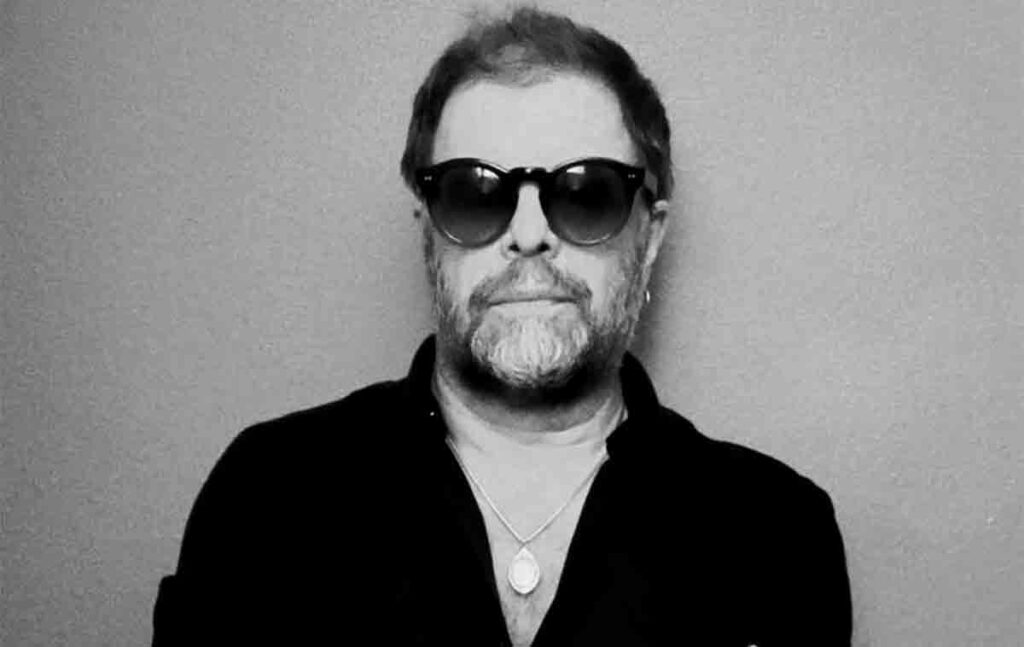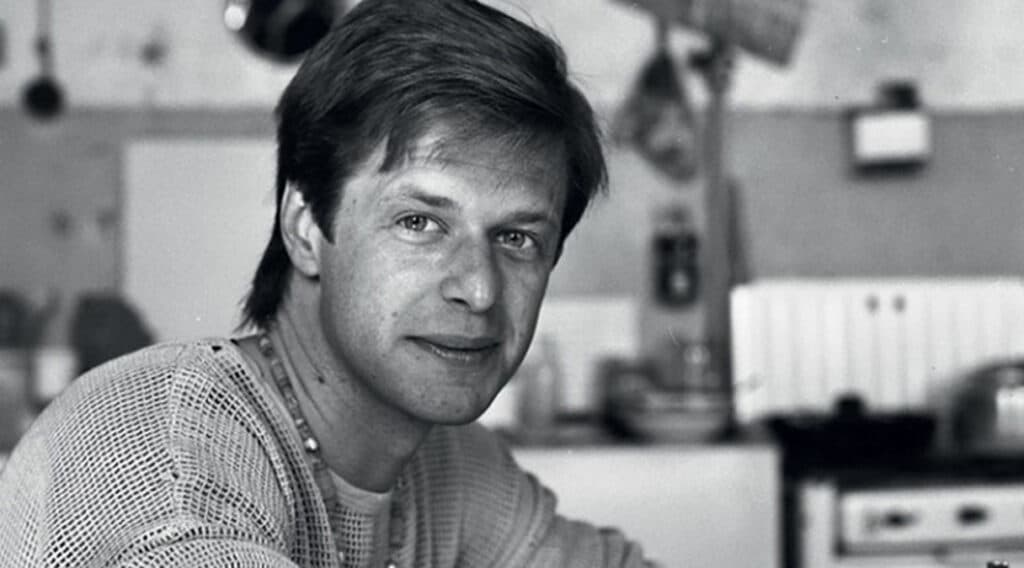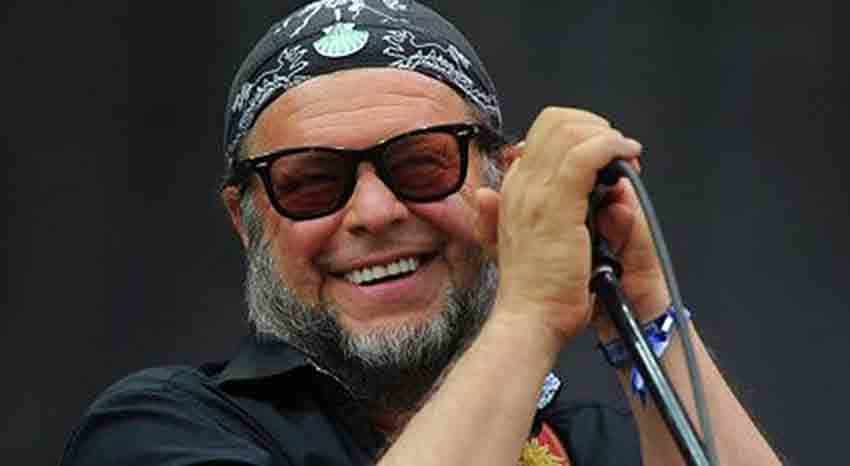Boris Grebenshchikov is an artist who can rightfully be called a legend. His musical creativity has no time frames and conventions. The artist's songs have always been popular. But the musician was not limited to one country.
His work knows the entire post-Soviet space, even far beyond the ocean, fans sing his songs. And the text of the invariable hit “Golden City” has been known by heart for three generations. For the achievements and progressive development of Russian music, the artist is a holder of the Order of Merit for the Motherland.

The childhood of the star Boris Grebenshchikov
The boy was born on November 27, 1953 in the city of Leningrad, in an intelligent family. His grandfather (on the paternal side) was the head of the Baltekhflot organization and a well-known figure in military circles. Grandmother, Ekaterina Vasilievna, was a housewife and lived until her death in the family of her son and daughter-in-law, actively raising her grandson Boris. She played the guitar beautifully and from an early age instilled in her grandson a love of music. In the future, he used exactly his grandmother's style of play.
The singer's father served as general director at the Baltic Shipbuilding Plant. He was a practical and strong-willed man, but because of his busyness, he did not pay much attention to his son. But the decision to become a musician, to the surprise of the boy, supported. As a preschooler, Boris found an old guitar thrown out by someone in the yard and brought it into the house. And it was dad, noticing the boy’s passion, who restored it, varnished it and gave the repaired thing to his son.
The mother of the star is a romantic and sophisticated woman, she worked as a legal adviser in the Model House. She madly loved her son, tried from childhood to accustom him to good manners and understanding of art. It was the mother who insisted that the boy be sent to a prestigious Leningrad school.
Already from the 2nd grade, Boris began to collect songs by Vladimir Vysotsky. The boy was very happy when his parents gave him an MP-2 tape recorder, which was in short supply at that time. My parents had recordings of Soviet performers. And the young musician, having closed himself in his room, enjoyed listening to the tracks for hours.
The boy really liked foreign rock performers, they could only be heard on the Voice of America radio station. But since it was difficult to do this in the Soviet Union, the boy watched sports programs where figure skating was broadcast. There, the skaters often performed to the songs of foreign performers, and he managed to record everything on a tape recorder.

The youth of the artist
Even in the elementary grades, Boris was considered a well-known connoisseur of music at school. Already in the 5th grade, he sang from the stage the famous song of V. Vysotsky "On the Neutral Strip". According to the singer, this event was the beginning of his creative career.
One day, a young man with his grandmother was walking near the territory of the children's camp and saw a dark-skinned boy with a guitar who performed a song by the group The Beatles. Boris really wanted to meet this young performer, but it was almost impossible to get into the camp. Then a faithful grandmother came to the rescue - she went to the director of the camp and got a job there.
After that, she attached her grandson to the institution. A month later, during the summer holidays, Boris already performed a dozen and a half foreign hits on the guitar of the same boy. The leadership did not really like the fact that the young man disturbed the peace with his rocker songs and "promoted the ideas of capitalism with his singing." But the pioneers really liked the freedom-loving and fearless guy, and they always defended him. So for three years in a row, the young man won the hearts of young people in the camp with his singing and playing his favorite guitar.
Then fate brought Boris to the young man Leonid Gunitsky. He lived in a neighboring yard and was also fond of music. Thanks to common interests, the guys quickly found a common language, even at school they tried to create their own musical group, which would be similar to the Liverpool Four. But after school, Boris, on the instructions of his parents, entered the prestigious faculty of Leningrad University. And Lenya, not wanting to part with a friend, followed him.
Student years and the creation of the Aquarium group
During the years of study at the university, the guy did not leave his beloved work and continued to “bring freedom to the masses” with the help of his music. Together with Leonid Gunitsky (nicknamed George), they began rehearsals in the assembly hall of the educational institution. Since the main idols of the guys were foreign performers - Bob Marley, Marc Bolan, Bob Dylan and others, they wrote songs in English. Needless to say, they did well.
To be closer and more understandable to the people, the guys decided that they needed to sing in an understandable language - in Russian. In parallel, the students worked on the creation of a fundamentally new musical group that would create conceptual music. In 1974, the Aquarium group appeared in Leningrad. Its soloist, poet, composer and ideological inspirer was Boris Grebenshchikov.
Initially, the group consisted of four people (just like the Beatles) - Boris, Leonid Gunitsky, Mikhail Feinstein-Vasilyev and Andrey Romanov. But due to many disagreements regarding creativity, only Grebenshchikov remained in the team, the rest left him.
Excessively carried away by music, and partly forbidden at that time, Boris Grebenshchikov left his studies. If not for his parents, he would have to forget about the diploma. But the possibility of expulsion did not frighten the musician - he created a new line-up.

Despite the fact that the university administration forbade the group from rehearsing on the territory of the institution, and all the recording studios refused to work with the team, the guys did not give up. The group began to gather at the musicians' apartments to write new songs.
Forbidden creativity
As expected, the authorities did not like the young and very active musician, who excited the minds of the listeners. Censorship did not allow the songs of the Aquarium group to pass, and performances on large stages were closed to them. But the band managed to release album after album. Despite everything, the albums sold out at breakneck speed. And the songs of the Aquarium group were listened to throughout the Soviet Union.
The group took its first official participation in the famous rock festival "Rhythms of Spring" only in 1980. The performance ended in a scandal, the group was accused of immorality and propaganda of incest. And it all happened by accident. Because of the poor sound, listeners instead of the words "marry a Finn" heard "marry a son." In addition, the guys decided to sing the songs “Heroes”, “Minus Thirty” and others that the authorities did not like.
In the middle of the performance, the jury defiantly left the hall, and Boris (on his return to his hometown) was expelled from Komsomol. But this did not upset the brave musician. In 1981, thanks to the support of Sergei Tropillo, he and the group released their first album, Blue Album.
The top of the popularity of the artist Boris Grebenshchikov
After Grebenshchikov's work was "officially recognized", pleasant events took place. In 1983, together with the Aquarium group, he took part in a large rock festival in Leningrad. The singer managed to work with Viktor Tsoi - he became the producer of the Kino group. The following years, the artist worked on the release of two English-language albums Radio Silence, Radio London. He was allowed to visit the United States of America. There he fulfilled his dream and met David Bowie и Lou Reed.
After perestroika, creativity was completely different - freedom began in thinking, music and lyrics. The musician actively performed with concerts on the main stages of the country. He had millions of fans for whom his music became a motivation and a way of life. Even in the cult film directed by Sergei Solovyov, the famous song "Golden City" sounded. It was this hit that became a kind of calling card of the musician.
Creativity without the Aquarium group
In the early 1990s, the artist officially announced that he was leaving the group "Aquarium”and creates his new brainchild - the GB-Bend team. This did not affect the singer's popularity, he still collected halls, wrote new hits and actively toured abroad. In 1998, he was awarded the Triumph Prize for his contribution to literature and Russian art.
In the late 1990s, two new albums with new themes were released. Fans managed to see the musician from the other side.
In the 2000s, Boris Grebenshchikov worked as a presenter on Radio Russia and at the same time, thanks to the support of Sri Chinma, he gave a concert in London at the Albert Hall concert hall, and then at the United Nations.
In 2014, Grebenshchikov presented the musical "Music of Silver Spokes", which included a collection of the best compositions.
And in the last decade, the artist was fond of Eastern philosophy and culture. He wrote fewer songs and music, devoting considerable time to literary and translation activities. At the moment, the star lives in three countries (America, Britain and Russia) and considers himself a man of the world, not tied to one place.
Boris Grebenshchikov: Personal life
The singer was married three times. And all three spouses before marriage with him were married to his friends. Despite this fact, the artist is in excellent relations with everyone.
From his first marriage with Natalia Kozlovskaya, the artist has a daughter, Alice (also an artist). The second wife of Boris Grebenshchikov was Lyubov Shurygina, whom he “recaptured” from his bandmate Vsevolod Gakkel. They had a son Gleb. But after 9 years of marriage, the woman divorced the musician because of his constant betrayals.
The third wife, Irina Titova, accepted the fact of her husband's abundance of love and decided not to notice his frequent hobbies. She managed to save the marriage even after one of her husband's mistresses, Linda Yonnenberg, published a book about a romantic relationship with the musician. Irina gave birth to Boris' daughter Vasilisa, and the woman's son from her first marriage, Mark, also lives with them.
Today Boris Grebenshchikov leads a very active life. As the singer himself says, he is torn between countries and continents. Recently, he often visits Nepal and India. There he finds sacred places of power, draws energy and puts thoughts and feelings in order.
A pleasant surprise for the fans of the star was the news that Grebenshchikov was going to resume performances with the Aquarium group and give a series of concerts in the cities of Russia and neighboring countries.
Boris Grebenshchikov now
Back in 2018, BG shared with fans the information that he was actively working on the creation of a new LP. The “fans” helped the musician to raise funds for recording the record.
In the summer of 2020, the presentation of the disc took place, which was called "Sign of Fire". The record was topped by 13 tracks. Work on the "Sign of Fire" was carried out not only in the territory of his native country, but also in California, London, and Israel.



